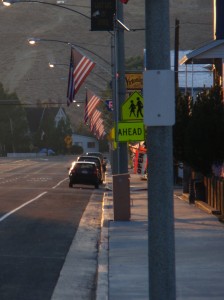Monday Morning Review: Local Governments in the Federal Appellate Courts
Posted
13 Jan 2014 in Monday Morning Review
Here are last week's published decisions involving local governments. They include two unsuccessful due-process challenges -- one to speed-camera programs, the other to booking fees: Second Circuit
Second Circuit
- Matusick v. Erie County Water Authority, No. 11-1234 (Jan. 6, 2014) (upholding jury's finding of liability against water authority arising out of "interference with employee's intimate association" due to alleged verbal and physical harassment).
- Snider International Corp. v. Town of Forest Heights, No. 12-2490 (Jan. 7, 2014) (holding that Town did not violate procedural or substantive due process by issuing citations by mail under Town's speed-camera program).






